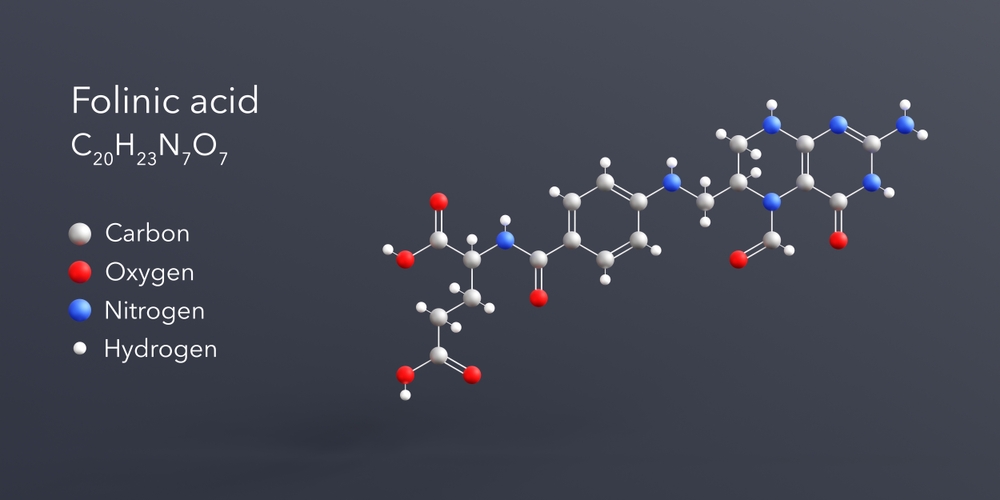In a move that has given some people hope while on the other hand drawing sharp criticism from leading medical experts, the Trump administration recently took action to promote the use of an existing generic drug, Leucovorin, as a treatment for Autism. The highly publicized announcement, which was accompanied by the promotion of unsupported theories linking Tylenol (acetaminophen) use during pregnancy to autism, was framed as a bold step to provide hope to families. However, the move has ignited a fierce debate over scientific rigor, parental hope, and the responsible communication of medical research.
What is Leucovorin?

Leucovorin is a form of folate for treating chemotherapy patients and certain types of anemia.
Leucovorin, also known as folinic acid, is a form of folate (vitamin B9). It is not a new drug; it has been used in medicine for decades. It has primarily been used in two established roles:
- Chemotherapy Rescue: It is given to patients receiving the chemotherapy drug methotrexate to protect healthy cells from the drug’s toxic side effects.
- Treating Anemia: It is used to treat certain types of anemia caused by folate deficiency.
The drug’s connection to autism stems from research into Cerebral Folate Deficiency (CFD), a rare condition where the body develops autoantibodies that block the transport of essential folate into the brain. Because Leucovorin is a specialized, active form of folate, it can use an alternate pathway to bypass this blockage and restore folate levels in the brain.
The Trump Administration’s Announcement

Trump and RFK Jr. say they are making Leucovorin available as a drug to ‘cure’ Autism.
In a press conference in September 2025, President Trump and Health and Human Services (HHS) Secretary Robert F. Kennedy, Jr. presented Leucovorin as a breakthrough treatment for symptoms related to the “autism epidemic.” The official action taken by the U.S. Food and Drug Administration (FDA) was to initiate a label update for the generic drug, specifying its use for CFD, a condition the agency acknowledged is “associated with autism.” This label change allows physicians to prescribe the drug for this specific neurological condition with greater ease. It also paves the way for state Medicaid programs to potentially cover the cost for patients with CFD and autistic features.
While the FDA’s technical action was limited to the rare CFD indication, the administration’s rhetoric was significantly broader. Trump et al are heavily promoting the drug as an “exciting treatment” for Autism Spectrum Disorder (ASD) and sparking hope that the treatment would be widely applicable.
What Medical Experts are Saying
The response from the majority of the scientific community and leading autism research institutions was immediate and overwhelmingly skeptical. Medical experts, including psychiatrists and developmental pediatricians, quickly distanced themselves from the announcement. They have stated that the evidence for using Leucovorin to treat the general population of people with autism is “very weak” and “incredibly premature.”
The Medical Community’s Reasons for Skepticism

Autism is a complex genetic condition, not a disease that needs curing
The medical community has cited several reasons as to why they are so skeptical of this announcement. Their reasons are as follows:
- Insufficient Data: Researchers criticized the studies supporting the drug’s use for general autism symptoms as too small, often limited to case reports or small randomized trials that lack the rigor necessary for widespread clinical use.
- Focus on Genetics: Experts stress that autism is a complex neurodevelopmental condition largely rooted in genetics and is not caused by a simple vitamin deficiency. They worry the broad promotion oversimplifies the disorder.
- Call for Trials: The consensus is that while the drug is interesting and warrants further investigation, it should only be administered within the context of large, controlled clinical trials to definitively prove its efficacy and long-term safety in children with ASD.
Read More: Researchers Trace Autism Traits to Ancient Neanderthal DNA
What Parents of Autistic Children are Saying
The announcement has elicited a polarized reaction from the community it intended to serve. This reflects the desperation some parents feel versus the skepticism of many autistic people and advocates. The issue is that this drug has essentially offered anecdotal hope. Some parents whose children were prescribed Leucovorin off-label for suspected folate issues report remarkable, anecdotal improvements, particularly in speech and social interaction. For these families, the drug, often procured through compounding pharmacies, is seen as a “little bottle of hope.”
Many parents and self-advocates on the autism spectrum view the promotion of an unproven “cure” as irresponsible and potentially harmful. Autistic advocates emphasize that ASD is a natural human difference, not a disease requiring a cure. They criticise the administration for creating false hope and distracting from established, evidence-based supports like behavioral, speech, and occupational therapies.
Could This Actually Help People with Autism?

Leucovorin may help only a small subset of the autistic population who have a rare folate condition.
For a very specific, limited group of people, yes, Leucovorin may help – but not for most, and it is most definitely not a cure.
Leucovorin is a promising intervention for the rare subset of individuals with ASD who also have confirmed CFD, or are positive for the Folate Receptor Autoantibodies (FRAA) that cause it. For these individuals, correcting the folate transport deficit may lead to measurable gains, particularly in language and communication skills. For the vast majority of the autistic population, who do not have this underlying metabolic deficit, there is currently no scientific evidence to suggest that Leucovorin will provide any benefit.
The Bottom Line
Medical experts caution that any family considering Leucovorin should first have their child tested for the specific folate-related autoantibodies. If the child tests positive, then and only then should they proceed, and only under the guidance of a qualified healthcare professional who can monitor for potential side effects, such as hyperactivity. The most important thing for people to realize is that ASD is not a disease that needs curing. It is a group of people whose brains have developed in a unique way. These people are just like any of the rest of us and can most often contribute to society in much the same way. Finally, always remember to make sure you are getting your medical information from credible sources and from actual health and medical experts.
Read More: Researchers Identify Four Distinct Autism Subtypes in Study of 5,000 Kids

